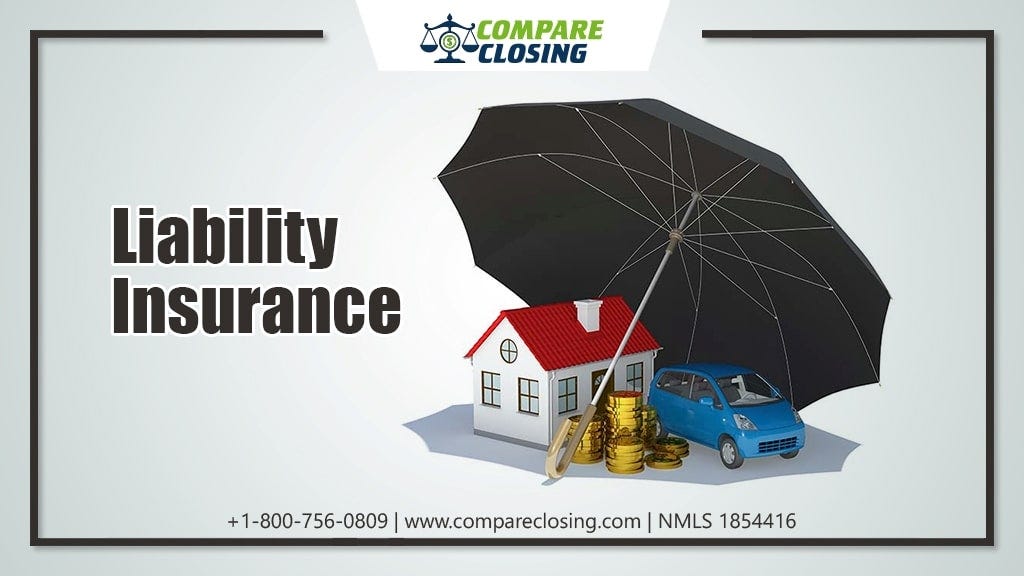
About Liability Insurance
Most people are aware of homeowner’s insurance which covers your home in the event of any damages that occurred during your homeownership.
However, imagine if someone gets injured on your property accidentally and holds you responsible for the damages.
You don’t have to worry about those damages if you have liability insurance included in your homeowners’ insurance. In this post, we will learn what is liability insurance and how it works.
What Is Liability Insurance?
Liability insurance is a part of your homeowner’s insurance policy that covers damages if you are found responsible for injuring someone or damaging their property.
Liability insurance can pay for a variety of expenses if you are held responsible for injuring someone or damaging their property like medical bills, legal or lawsuit charges, loss of income, etc.
Liability insurance only covers accidents and usually is not applied to purposefully inflicted injuries or property damage.
Liability coverage does not cover injuries and property damage to the policyholder or anyone else who lives in your home.
For claiming liability claims you don’t have to pay any deductible unlike some of the other coverages included in your homeowner’s insurance policy.
The coverage of the liability claim is subject to a limit which is the maximum amount your policy will pay for a covered claim.
How Does Liability Insurance Work?
In the event someone is got injured on your property due to your negligence, you would be liable to pay for the medical expenses that were made by the person as well as any other legal fees associated with it.
This claim is submitted to your insurance company by you or the person affected. The person who was injured or had damaged property needs to prove negligence during the claim process.
Depending on the type of injury or property loss, the person needs to inform the policyholder on how to go about the process.
If the policyholder and the person affected are neighbors or friends, and the injury or property loss is not that major, you can settle the claims using the policy’s no-fault medical payments coverage, or pay out of pocket for the medical expenses.
However, if the accident is significant that is resulting in a loss of income, you might want to file a personal liability coverage claim with your insurance company.
If the claim is being made by the affected person, they would require your full name, the name of your insurance company, and your policy number.
If you disagree with the claim made by the affected person they may file a lawsuit for negligence and your insurance company will decide whether to settle and pay for the claim or fight the lawsuit.
If your insurance provider accepts to settle and pay, they would ask for additional proof from the witness of the incident.
Other things that your insurance provider may require from the affected person are medical bills, the date and time of the incident, and a detailed explanation of the entire incident.
Once the entire claim is submitted, the insurance company will assign an adjustor for your case.
This adjuster will assess the case, make the necessary investigation, speak to the witnesses, visit the place of incidence, and verify all the submitted evidence before approving the claim.
What Are The Types Of Liability Insurance?
Below are the types of Liability Insurance Coverage.
I — Homeowner Liability Insurance:
Personal liability coverage will cover any accidents or loss of property that happens in or outside of your home for someone else.
For example, if you invite your colleague at home for a get-together and he slips from a stair on your porch that was slippery due to snowfall and breaks his arm and he sues you for his medical expenses.
This is when your personal liability coverage kicks in and pays for those expenses making sure that you don’t pay for them from your pocket.
II — Auto Liability Insurance:
This type of coverage will protect you if you damage another person and his/her car in an accident. This covers medical expenses caused to the person along with the repairs of the damaged car.
III — Renters Liability Insurance:
Just like homeowners liability insurance, a renter’s liability insurance will cover the physical or property damages caused on your rented property to someone else.
IV — Landlord Liability Insurance:
If you have an investment property on rent, you might have to take landlord liability insurance.
This will cover any accidents that happen to the tenant due to any negligence from the landlord’s end.
For example, if you fail to repair the main stairs in the house and the tenant falls due to that, you are liable to pay for the medical expenses of the tenant.
Conclusion
When you are looking at your homeowner’s policy, it is important that you also take a look at your personal liability coverage amount.
A great thing about liability insurance is that it is not expensive to get one. Just by paying a few dollars, you can get a good coverage amount.
You will have peace of mind knowing that if something happens, you can avoid the out-of-pocket cost.
https://www.compareclosing.com/blog/what-is-liability-insurance/
Comments
Post a Comment